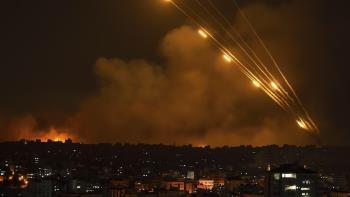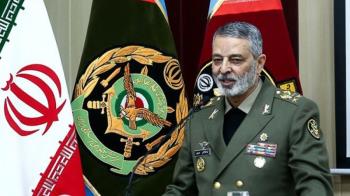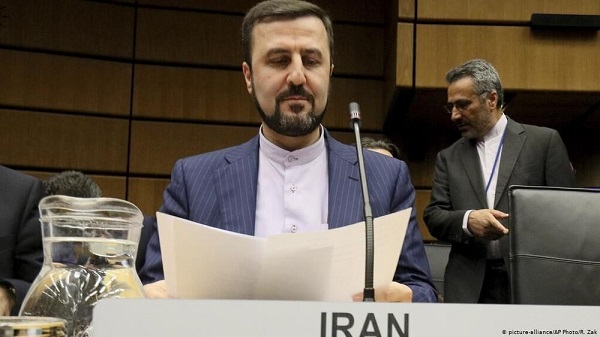Alwaght- The International Atomic Energy Agency (IAEA) decision to pass a resolution against Iran’s peaceful nuclear program drafted by three European countries represents an important development from a variety of aspects.
A set of question are raised following the resolution: Why have the European powers taken such a step despite their awareness of the negative impacts of the move on the 2015 Iran nuclear deal and their constant support to the deal in their stated policy? Should this European move be regarded as a sign that the EU is joining Trump’s anti-deal campaign? What is the motivation behind the European trio’s pressures against Tehran and what implications could they have?
The trio’s goals?
In shedding light on the goals of the European countries behind passing the anti-Iranian resolution at the IAEA, we need to look at the complications in the interests of the three countries concerning the deal, officially known as Joint Comprehensive Plan of Action (JCPOA).
The Europeans repeatedly said that the collapse of the JCPOA will initiate a new season for crisis and nuclear competition in the West Asia region, the consequences of which will include the emergence of new waves of terrorism and refugees that directly threaten the European security and stability.
But the European countries, which have massive trade with the US and also at the military and security levels seek to save the collapsing strategic transatlantic alliance, have no will and power to seriously confront Washington's unilateral policies. As it was predicted, at the end of the road, they matched their policies and views on the Iranian nuclear program with the American policy.
The Europeans exports to the US in 2019 were, according to the statistics, about $295 billion. The EU imported $193 billion from the US by the third quarter of 2019.
When the US President Donald Trump in May 2018 withdrew from the JCPOA and reinstated the illegal sanctions on Iran, the European bloc took no measures to foil the illegitimate anti-Iranian pressures. Although EU 3 were unhappy with the US sanctions and had the power to confront the Trump strains, they two years failed to take steps to save the deal over the past. Even the financial tools they provided for trade with Iran lacked a suitable performance that could persuade Tehran that they really wanted to save the deal.
From months ago that Tehran began to reduce its JCPOA commitments step by step in response to the US sanctions and the European inaction to create a balance and give the signatories the chance to rethink their commitments, the European parties took a path of wasting time and blame-shifting instead of returning to their promises made under the nuclear agreement to persuade Iran not to take further steps towards retaliation.
Actually, by drafting the IAEA resolution the European sides want to firstly dissuade Tehran from taking further commitment reduction steps by warning that the agreement could collapse and sanctions could return and secondly save the status quo until after the US presidential elections, scheduled for November 3.
What are the implications of the resolution?
While the three European states seek to put strains on Iran and keep the ball in the Iranian court, Iran’s IAEA envoy Kazem Gheybabadi in his address said Iran will not accept the pressure and categorically rejects the resolution and will take appropriate actions in response.
The fact is that with the so-called crippling US sanctions already in place and achieving nothing for Washington, the European threat to return to the sanctions makes no sense. After all, Tehran has already taken the measures and prepared itself for sanctions.
In addition, there is not global consensus on Iran nuclear program. The West has been treacherous towards Iran and the JCPOA and this reflected in the Chinese and Russian negative vote to the trio’s resolution. In fact, the threats of economic sanctions by the West against the Islamic Republic are no longer viable.
The recent resolution, unprecedented in eight years, can work against the will of the West and encourage Iran to speed up the reduction of its JCPOA commitments.
On the other side, the anti-Iranian move not only will not protect international security but also falls under the US policy to break the norms and undermine the world’s legal regimes. It only will erode the trust in the Western states and cause unwillingness to rely on the International legal regimes to protect the rights and interests of the nations in the world community.



























